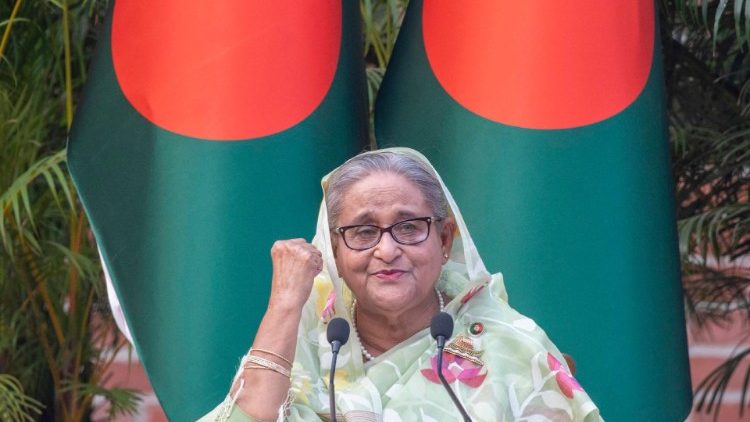
As widely anticipated, Bangladesh’s Awami League won Sunday’s controversial general election, confirming incumbent Prime Minister Sheikh Hasina for a fifth term with her party taking 223 seats out of 300.
Independent candidates, largely aligned with the Awami League, won 62 seats, while Jatiya, the main opposition party after the BNP, took 11 seats. Thus, for the next five years, the Awami League will have almost no opposition in Parliament.
Opposition boycott
The outcome of the polls was a foregone conclusion after the e main opposition Bangladesh Nationalist Party (BNP) led by Abdul Moyeen Khan, and its allies decided to boycott the vote alleging Hasina's growing authoritarianism. The BNP had called for the establishment of an independent caretaker government prior to the vote to lead the country into the election to avoid fraud.
Low turnout
According to the Election Commission, the elections saw an official voter turnout of about 40 per cent, its third lowest ever. The figure, however, was deemed inflated by some and “ridiculous” by the BNP. Khan called it a “fake election” and said the Awami League-led government was “illegitimate”, demanding the vote be cancelled.
For her part Hasina dismissed the opposition’s allegations, saying her fifth term in power is a “victory of the people”.
The 76-year-old leader was first elected in 1996. Re-elected in 2009, she has remained in power ever since, boosting Bangladesh's economic development. However, her long reign has been marked by arrests of opposition leaders, crackdowns on free speech and suppression of dissent.
According to Human Rights Watch almost 10,000 activists and opposition supporters have been taken into custody following protests in October 2023, during which 16 people died and more than 5,000 were wounded.












